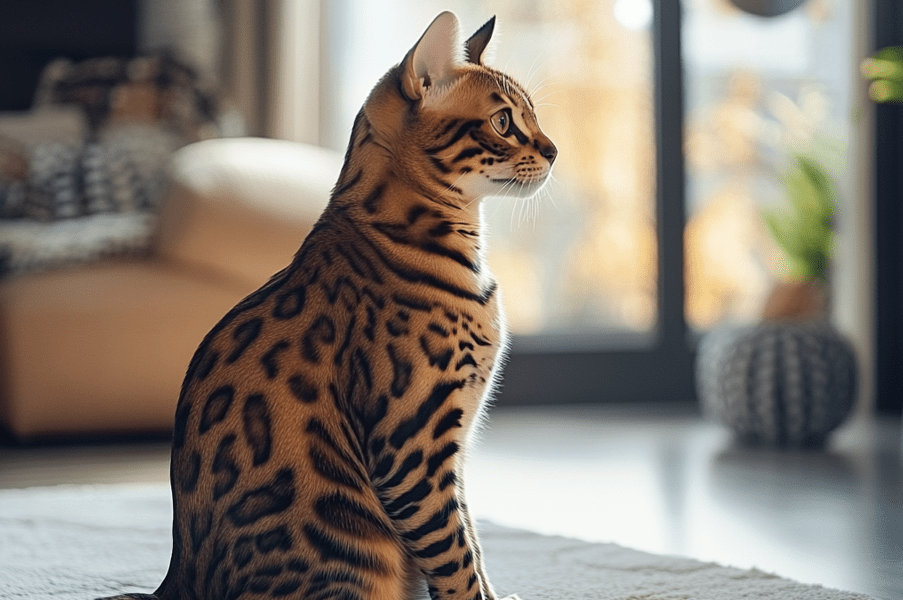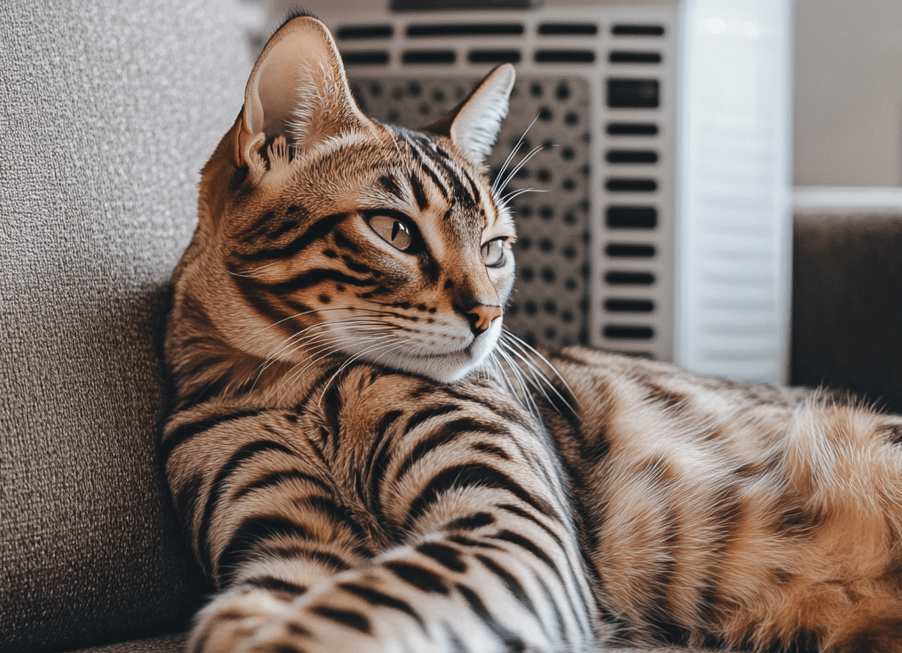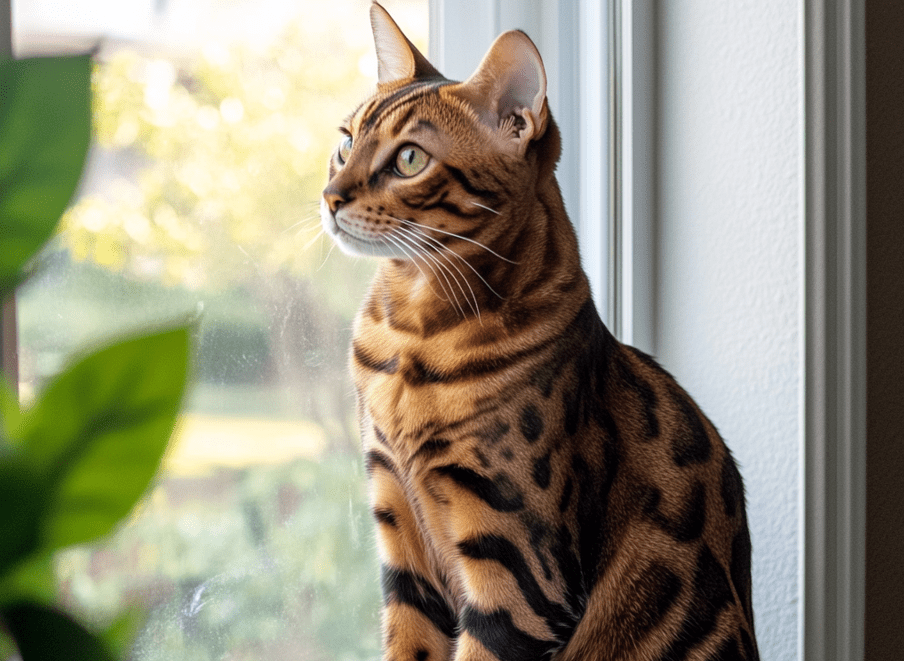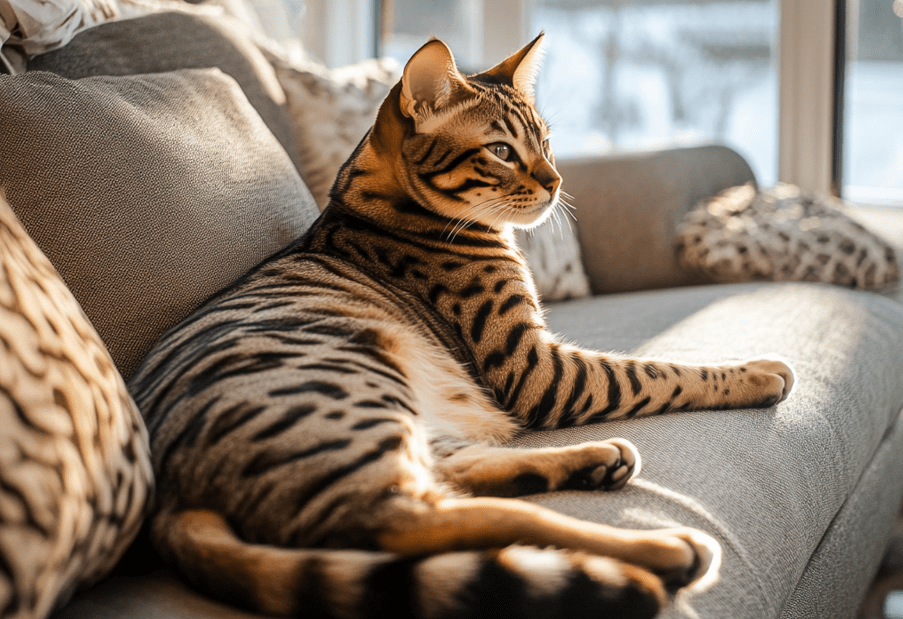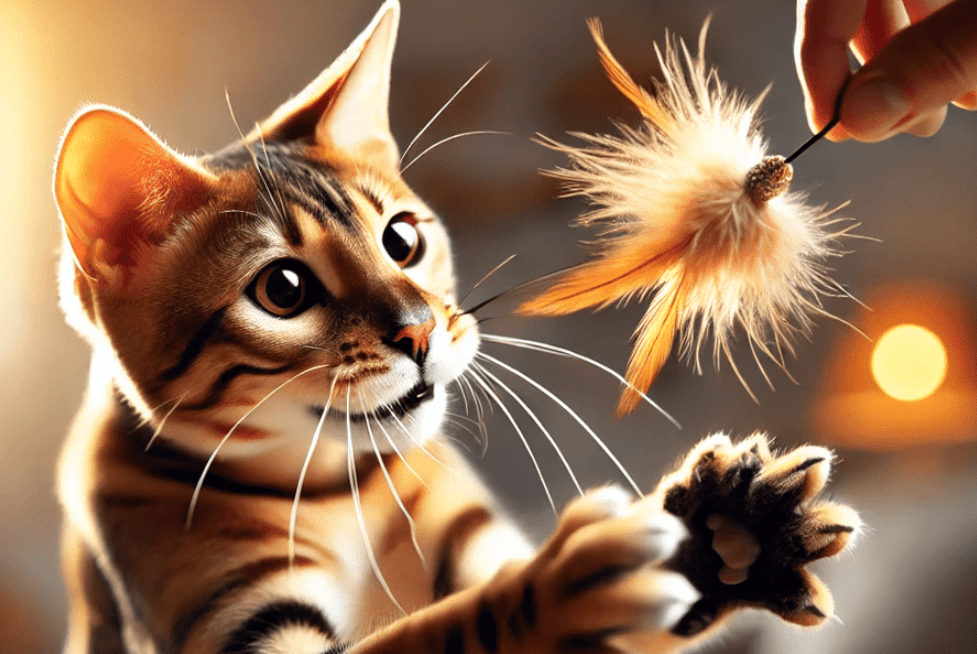
Bengal cats, with their striking leopard-like coats and energetic personalities, are a unique and beloved breed. As a Bengal cat owner, ensuring your feline companion stays healthy is a top priority. One of the most critical aspects of their care is choosing the right vaccinations tailored to their lifestyle. Vaccinations protect Bengal cats from serious diseases, ensuring they live long, vibrant lives. This comprehensive guide explores the essential vaccinations for Bengal cats, factors to consider based on their lifestyle, and tips for keeping your cat’s health on track.
Why Vaccinations Are Essential for Bengal Cats
Bengal cats are known for their adventurous and curious nature, often exploring their surroundings with boundless energy. This active lifestyle can expose them to various health risks, including infectious diseases. Vaccinations are a preventive measure that stimulates your cat’s immune system to fight off specific pathogens, reducing the risk of illness. By vaccinating your Bengal cat, you’re not only protecting them but also contributing to the overall health of the feline community by preventing the spread of contagious diseases.
Vaccinations are particularly important for Bengal cats because of their unique genetic makeup. As a hybrid breed, descended from the Asian leopard cat, Bengals may have specific health considerations. While they are generally robust, their active and social nature can increase their exposure to disease-causing organisms, making a well-planned vaccination schedule critical.
Core Vaccinations for Bengal Cats
Veterinarians categorize cat vaccinations into two groups: core and non-core. Core vaccinations are recommended for all cats, regardless of their lifestyle, due to the severity and prevalence of the diseases they protect against. For Bengal cats, the following core vaccinations are essential:
1. Feline Panleukopenia (FPV)
Feline panleukopenia, also known as feline distemper, is a highly contagious and potentially fatal viral disease. It attacks a cat’s white blood cells, weakening their immune system and causing symptoms like fever, vomiting, and diarrhea. Bengal kittens are particularly vulnerable, and vaccination is crucial to protect them. The FPV vaccine is typically administered as part of a combination shot, starting at 6-8 weeks of age, with boosters every 3-4 weeks until 16 weeks, followed by annual or triennial boosters.
2. Feline Viral Rhinotracheitis (FVR)
Caused by the feline herpesvirus, feline viral rhinotracheitis is a respiratory infection that leads to sneezing, nasal discharge, and conjunctivitis. Bengal cats, especially those in multi-cat households or who frequent boarding facilities, are at higher risk of exposure. The FVR vaccine is included in the combination shot and follows a similar schedule to the FPV vaccine.
3. Feline Calicivirus (FCV)
Feline calicivirus is another respiratory disease that causes symptoms ranging from mild sneezing to severe oral ulcers and pneumonia. Active Bengal cats that interact with other felines are more likely to encounter this virus. The FCV vaccine is part of the core combination vaccine, providing robust protection when administered according to the recommended schedule.
4. Rabies
Rabies is a deadly viral disease that affects both animals and humans. It’s transmitted through bites from infected animals, such as raccoons or bats, and is nearly 100% fatal once symptoms appear. Many regions legally require rabies vaccinations for cats. For Bengal cats, especially those with access to the outdoors, the rabies vaccine is non-negotiable. The first dose is typically given at 12-16 weeks, with boosters every 1-3 years, depending on the vaccine type and local regulations.
Non-Core Vaccinations for Bengal Cats
Non-core vaccinations are optional and depend on your Bengal cat’s lifestyle, environment, and risk factors. Your veterinarian can help you decide which non-core vaccines are necessary based on your cat’s unique needs. Common non-core vaccinations for Bengal cats include:
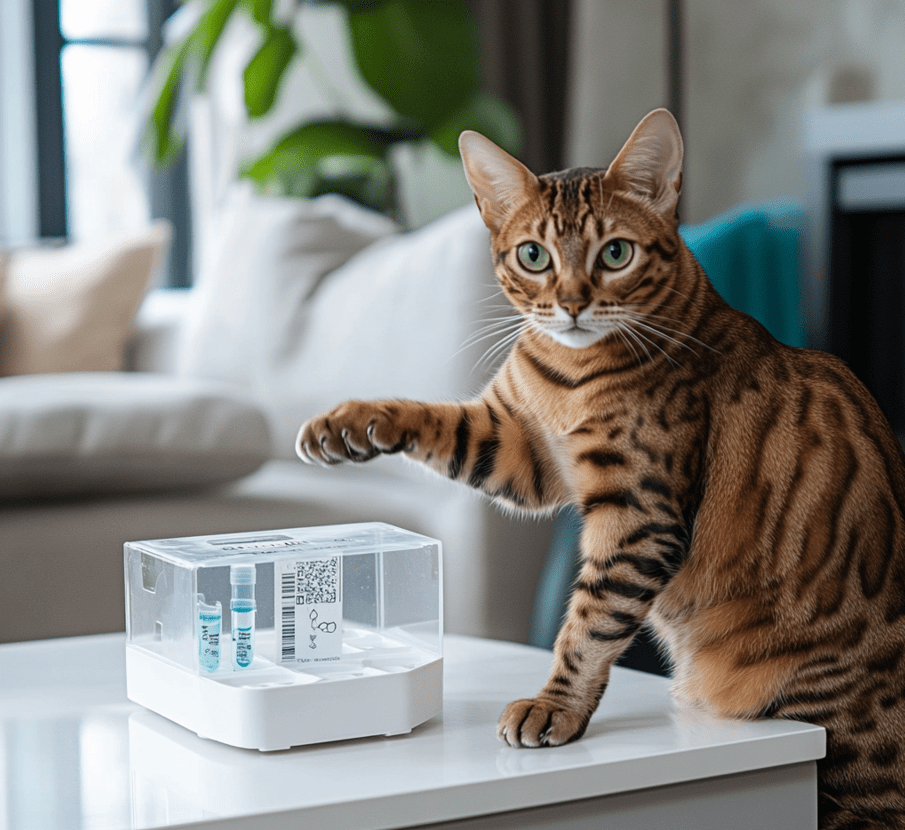
1. Feline Leukemia (FeLV)
Feline leukemia is a viral disease that weakens a cat’s immune system, making them susceptible to infections and certain cancers. It’s spread through close contact with infected cats, such as through grooming or sharing food bowls. Outdoor Bengal cats or those living with FeLV-positive cats are at higher risk. The FeLV vaccine is recommended for Bengals with outdoor access or those in multi-cat environments. Kittens receive two initial doses 3-4 weeks apart, followed by annual boosters.
2. Feline Immunodeficiency Virus (FIV)
Feline immunodeficiency virus, often compared to HIV in humans, compromises a cat’s immune system. It’s primarily transmitted through bite wounds, making outdoor Bengals more vulnerable. The FIV vaccine is less commonly recommended due to its limited availability and variable efficacy, but it may be considered for high-risk cats. Discuss with your veterinarian whether this vaccine is appropriate for your Bengal.
3. Bordetella
Bordetella bronchiseptica is a bacterial infection that causes respiratory issues, often seen in cats in crowded environments like shelters or boarding facilities. While not routinely recommended, the Bordetella vaccine may benefit Bengal cats who frequently board or attend cat shows. It’s typically administered as a nasal spray and requires annual boosters.
4. Chlamydia
Feline chlamydia causes conjunctivitis and respiratory symptoms. It’s more common in multi-cat households or catteries. The chlamydia vaccine is rarely needed for most Bengal cats but may be considered for those in high-risk environments. Annual boosters are required if this vaccine is deemed necessary.
Tailoring Vaccinations to Your Bengal Cat’s Lifestyle
Bengal cats have diverse lifestyles, from indoor companions to outdoor explorers. Choosing the right vaccinations depends on factors like their environment, social interactions, and travel habits. Here’s how to tailor a vaccination plan to your Bengal’s lifestyle:
Indoor Bengal Cats
Indoor Bengals have lower exposure to infectious diseases, so core vaccinations (FPV, FVR, FCV, and rabies) are usually sufficient. However, if your indoor Bengal interacts with other cats, such as during boarding or grooming, consider the FeLV vaccine as an added precaution. Regular veterinary checkups ensure your indoor Bengal’s vaccination schedule stays up to date.
Outdoor Bengal Cats
Bengals with outdoor access face higher risks of encountering infected animals, parasites, or environmental hazards. In addition to core vaccinations, outdoor Bengals should receive the FeLV vaccine and possibly others, like Bordetella, depending on their activities. Outdoor cats also require regular parasite prevention, as fleas and ticks can transmit diseases that vaccinations don’t cover.
Multi-Cat Households
Bengal cats living with other felines are at increased risk of contagious diseases like FeLV or respiratory infections. Core vaccinations are a must, and the FeLV vaccine is often recommended, especially if the health status of other cats is unknown. Maintaining a clean environment and monitoring for signs of illness can further protect your Bengal.
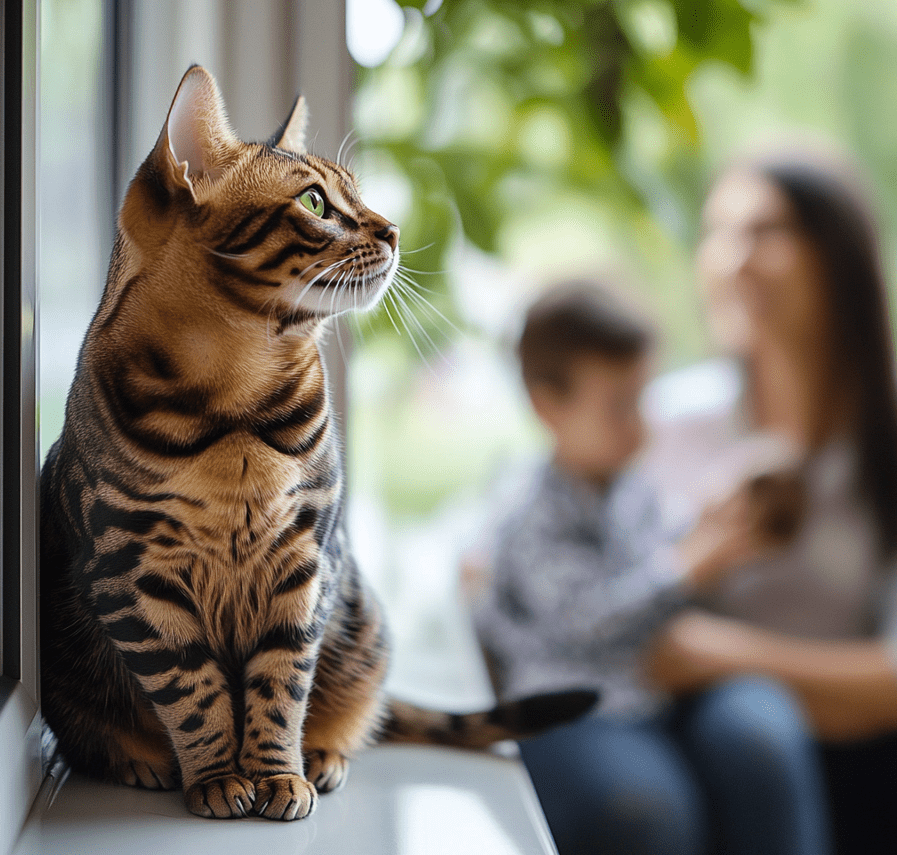
Travel and Show Cats
Bengals that travel or participate in cat shows are exposed to new environments and other cats, increasing their disease risk. In addition to core vaccines, consider non-core vaccines like Bordetella or chlamydia. Consult your veterinarian about additional precautions, such as pre-travel health checks or quarantine periods after events.
Vaccination Schedules for Bengal Cats
A well-planned vaccination schedule ensures your Bengal cat receives timely protection. The schedule varies based on age, lifestyle, and vaccine type. Here’s a general guideline:
Kitten Vaccination Schedule
6-8 weeks: First dose of combination vaccine (FPV, FVR, FCV)
10-12 weeks: Second dose of combination vaccine; first FeLV dose (if needed)
14-16 weeks: Third dose of combination vaccine; second FeLV dose; first rabies vaccine
6 months: Spay/neuter and microchipping (if not already done); booster shots as needed
Adult Bengal Cats
Annual checkups: Core vaccine boosters (FPV, FVR, FCV) every 1-3 years, depending on the vaccine; rabies boosters as required
Non-core vaccines: FeLV, Bordetella, or others based on lifestyle, typically annually
Senior Bengal Cats
As Bengals age, their immune systems may weaken, but core vaccinations remain important. Your veterinarian may adjust the schedule, focusing on low-dose or triennial boosters to minimize stress. Regular health screenings can catch age-related issues early, complementing your vaccination plan.
Potential Risks and Side Effects of Vaccinations
While vaccinations are generally safe, they can cause mild side effects in some Bengal cats. Common reactions include:
-
Lethargy or reduced appetite for 24-48 hours
-
Mild swelling or soreness at the injection site
-
Low-grade fever
Rarely, more serious side effects like allergic reactions or vaccine-associated sarcomas (a type of cancer) may occur. To minimize risks:
-
Choose a reputable veterinarian experienced with Bengals
-
Monitor your cat for unusual behavior post-vaccination
-
Discuss any concerns, such as a history of vaccine reactions, with your vet
If your Bengal has a known health condition or is immunocompromised, your veterinarian may recommend a modified vaccination plan to balance protection and safety.
Additional Health Tips for Bengal Cats
Vaccinations are just one part of keeping your Bengal cat healthy. Here are additional tips to ensure their well-being:
Regular Veterinary Visits: Annual or biannual checkups catch health issues early and keep vaccinations on track.
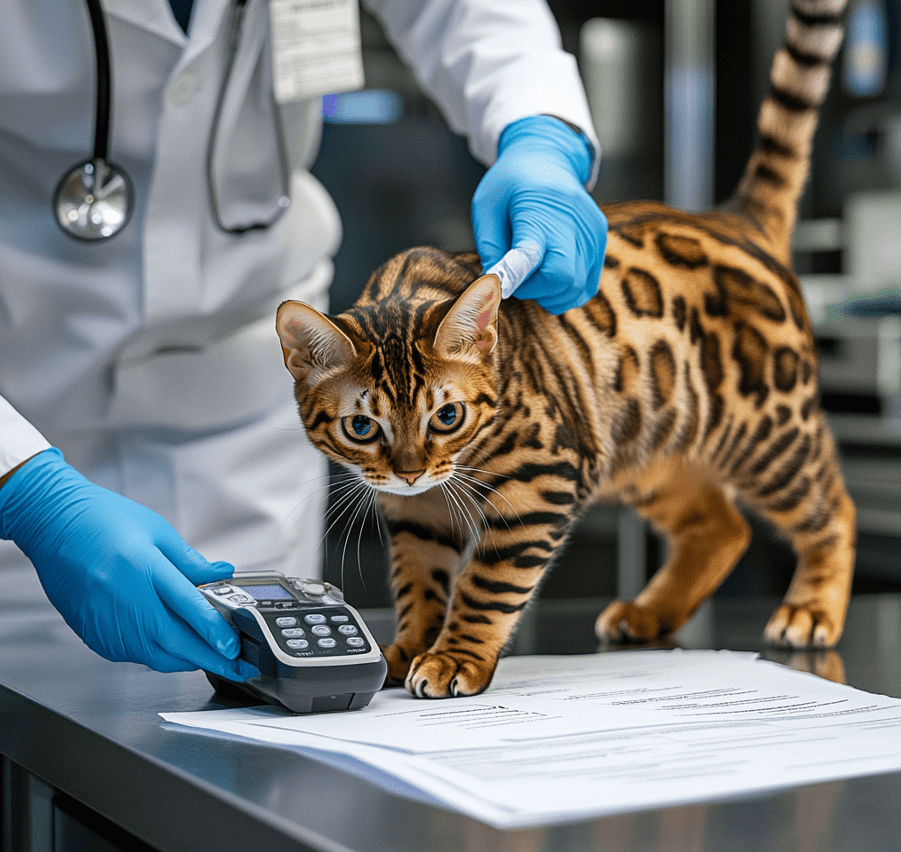
Parasite Prevention: Use vet-approved flea, tick, and heartworm preventatives, especially for outdoor Bengals.
Balanced Diet: Feed a high-quality, protein-rich diet tailored to your Bengal’s age and activity level.
Exercise and Enrichment: Provide toys, climbing structures, and interactive play to satisfy your Bengal’s high energy and mental stimulation needs.
Dental Care: Brush your Bengal’s teeth regularly and schedule professional cleanings to prevent dental disease.
Working with Your Veterinarian
Choosing the right vaccinations for your Bengal cat requires collaboration with a trusted veterinarian. When discussing your cat’s vaccination plan, consider:
-
Sharing details about your Bengal’s lifestyle, including indoor/outdoor status and social interactions
-
Asking about the latest vaccine recommendations and advancements
-
Requesting a tailored plan that balances protection with minimal risk
A veterinarian familiar with Bengal cats can provide insights into breed-specific health concerns, ensuring your cat’s vaccination strategy is both effective and safe.
Myths and Misconceptions About Cat Vaccinations
Misinformation about vaccinations can lead to confusion. Here are common myths debunked:
Myth: Indoor cats don’t need vaccinations.
Fact: Indoor cats can still be exposed to diseases through contact with other animals, humans, or contaminated objects.
Myth: Vaccinations cause autism in cats.
Fact: There’s no scientific evidence linking vaccinations to autism or similar conditions in cats.
Myth: All vaccines are the same.
Fact: Vaccines vary in formulation and duration of immunity, so work with your vet to choose the best options.
Conclusion
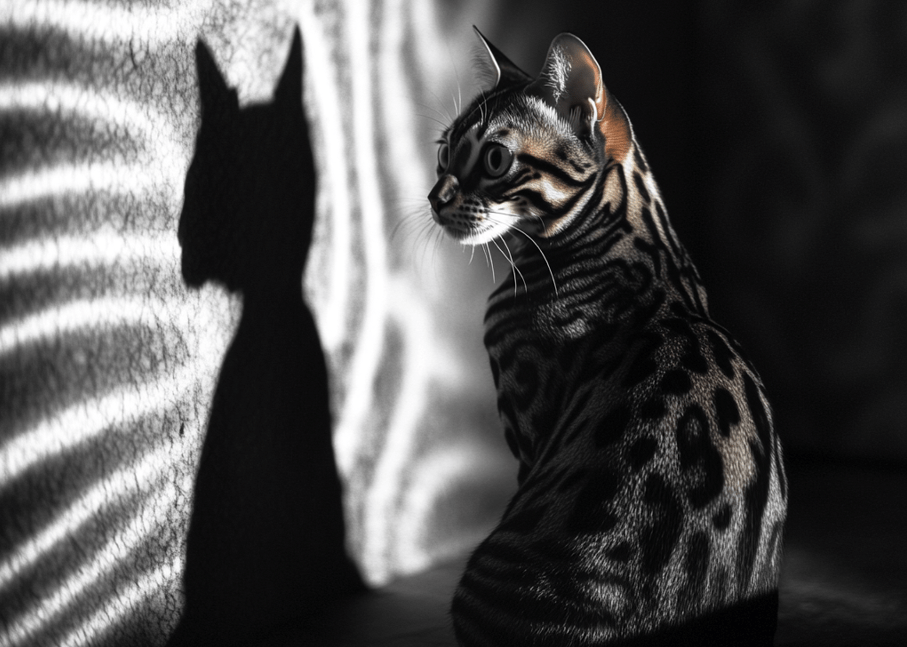
Choosing the right vaccinations for your Bengal cat’s lifestyle is a vital step in ensuring their long-term health and happiness. By understanding the core and non-core vaccines, tailoring a schedule to your cat’s unique needs, and working closely with your veterinarian, you can protect your Bengal from preventable diseases. Combine vaccinations with regular veterinary care, a balanced diet, and an enriching environment to give your Bengal cat the best chance at a vibrant, healthy life. With the right approach, your Bengal will continue to dazzle you with their wild beauty and playful spirit for years to come.

